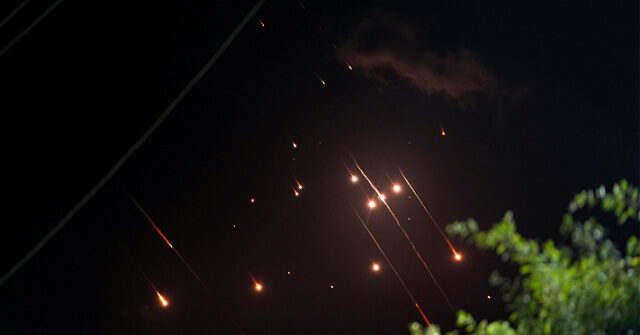On a recent episode of CNBC’s “Money Movers,” U.S. Ambassador to Israel Jack Lew addressed the escalating tensions between Iran and Israel, highlighting that Iran’s recent missile attack was a significant escalation in their conflict. Lew emphasized that the nature of the weapons used and the inherent risk to civilians marked a dangerous shift in their interactions. Despite this uptick in violence, he asserted that both nations seem to share a desire to avoid plunging into an all-out war, urging all parties involved to make strategic decisions that prioritize peace and stability in the region.
Ambassador Lew pointed out Israel’s proven capability to conduct operations within Iranian territory, which signifies a shift in the power dynamics between the two countries. He noted that this demonstrates an increased level of military engagement and capability on both sides, complicating the situation further. The ambassador indicated that, while both countries are capable of significant strikes against each other, there remains a mutual understanding that an all-out war is not in either nation’s best interest. The implications of escalating military engagements highlight the delicate balance both nations must maintain to avoid catastrophic outcomes.
Lew’s comments reflect a broader understanding of the regional landscape and the complex web of alliances and hostilities involved. The ambassador stressed the importance of measured responses and highlighted the severity of the current escalation. Both Iran and Israel have demonstrated military capabilities that could lead to wider conflicts, but the ongoing discussions suggest a mutual recognition of the risks involved in further escalation. The need for careful consideration of actions and reactions is highlighted as a crucial element in maintaining some level of stability in the region.
As tensions continue to rise, Lew reaffirmed the U.S. commitment to avoiding a full-scale regional war and indicated that diplomatic efforts should guide the decisions made by all parties. He pointed to a larger, regional context where various actors have interests at stake, suggesting that broader negotiations and dialogue will be necessary to mitigate conflict. The ambassador’s position reflects an understanding that sustained peace in the region requires a collective effort and that the escalation of military actions could lead to unintended consequences that disrupt not just the involved nations, but the entire Middle Eastern landscape.
Furthermore, Lew’s analysis suggests that the current situation is precarious and requires careful navigation by both Israeli and Iranian leaders. The ambassador conveyed a sense of urgency in addressing the rising tensions, indicating that both nations should evaluate their military strategies and consider their long-term interests. He highlighted that the risks of further military engagement present challenges that could spiral out of control, leading to a wider conflict involving other regional players. Such a scenario could profoundly destabilize the already fragile geopolitical situation in the Middle East.
In conclusion, Ambassador Lew’s statements reflect the ongoing complexities of U.S.-Middle East relations, particularly concerning Iran and Israel. The U.S. remains focused on preventing an escalation into full-scale war, advocating for diplomatic avenues over military confrontation. As military escalations become more pronounced, the emphasis is on the need for both nations to carefully assess their strategies and recognize the mutual understanding of the risks involved in pursuing aggressive military actions. Lew’s insights serve as a reminder of the fragility of peace in the region and the continuous effort needed to navigate the intricate relationships among these nations.

